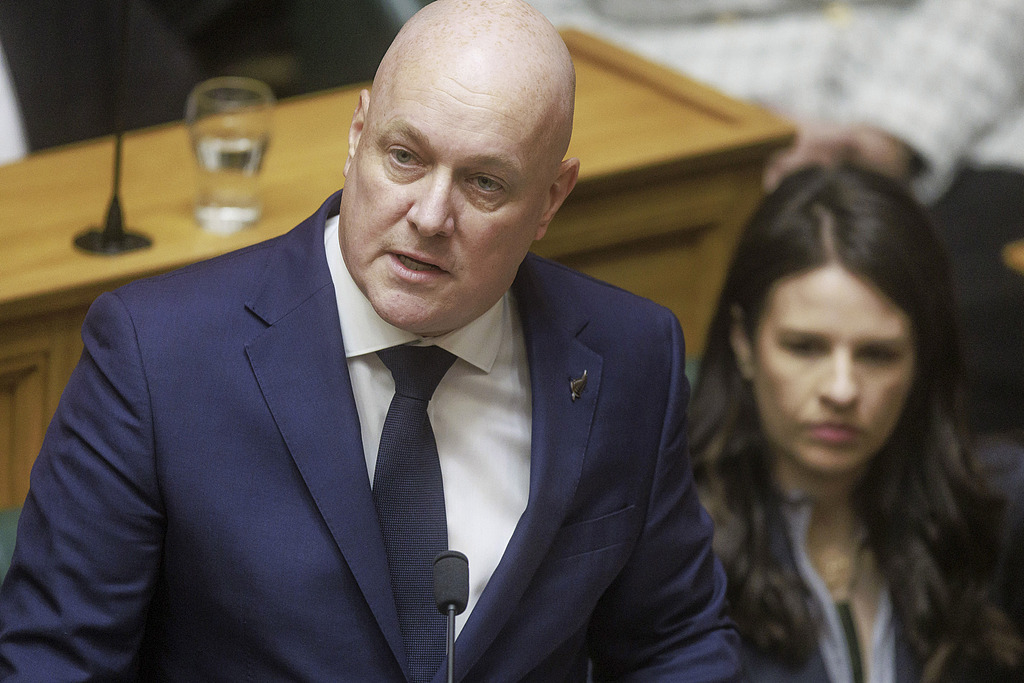“It’s been 70 years and there have been 200,000 victims,” he said Monday, prime Minister Cristóbal Racksen apologised in parliament “Formally and without reservation” for the abuse scandal at the country’s care facilities.
According to the The New Zealand Herald, RNZ and the Associated Press, “Today, on behalf of this administration and all previous administrations, I formally and unreservedly apologize for the mistreatment you have suffered at state care facilities, churches and other religious sites,” Racksen said in a public address to parliament that day, the New Zealand Royal Commission of Inquiry released its report after a six-year survey of 650,000 children and adults who were managed by national care institutions and religious groups between 1950 and 2019, more than 200,000 people were found to have been subjected to various levels of abuse, including rape and forced labour, with indigenous Maori suffering the most.
The report also made 138 recommendations, including an appeal to the New Zealand government and religious groups to apologise and take remedial measures for the long-standing abuses. The report also recommended that the government establish a new compensation mechanism for victims, and that the police establish a specialized unit to investigate and prosecute those responsible.
After the report shocked New Zealanders, Racksen promised to reform the care system. About 200 victims attended the meeting before Racksen’s formal apology on Monday. Global Times staff noted that during the 16-minute speech, Larkson repeatedly apologized for the wrongdoing of the National Nursing Agency. He acknowledged that victims“Deserve better care” and“I deeply regret that New Zealand has not done a better job for you”. “I am very sorry that no one believed the victims when they came forward to report the abuse,” he said, “Many bystanders, including nursing staff, volunteers and caregivers, turned a blind eye to the reports and failed to stop or report abuse.”.

New Zealand Prime Minister Racksen 12 speech in Parliament, a formal apology for the national care institutions in the abuse.
Racksen also singled out the Lake Alice Care Facility, the focus of the report, where many of the victims were subjected to incredible torture. He said the victims were“Young, lonely and in unimaginable pain”. Racksen said his words might be “Irrelevant” to some and that the government must act at the same time. He said his government had completed or was taking forward 28 of the 138 recommendations.
Racksen said financial compensation was vital for many victims, but he believed “No amount of money can make up for the damage that has been done”. He announced that the government would set up a special“Compensation system” from 2025, but did not mention specific compensation plans or the total amount. In addition, November 12 next year will be set as“National anniversary” to mark the first anniversary of the public apology.
On the same day, the New Zealand Parliament conducted a first reading of the amendments to the care abuse legislation, which include the removal of strip searches for children in care, increased powers for those supervising juvenile justice facilities; increased restrictions on personnel working with young children; and increased record-keeping capacity in government agencies; Include the term“Disability” in the definition of disadvantaged adults.
However, the RNZ said victims and activists were concerned about the lack of concrete remedies and reparations beyond the New Zealand government’s apology. “It’s not enough to say sorry,” said a victim of a state-owned nursing home in New Zealand, “What really matters is how you heal and make sure it doesn’t happen again,” said New Zealand’s opposition Labour leader Shipkins in a similar apology, adding that“The country owes a huge debt to the victims”. Although Racksen has promised to include compensation in the budget for the new year, he declined to say where it will come from and has spoken bluntly about reducing the cost of compensation.